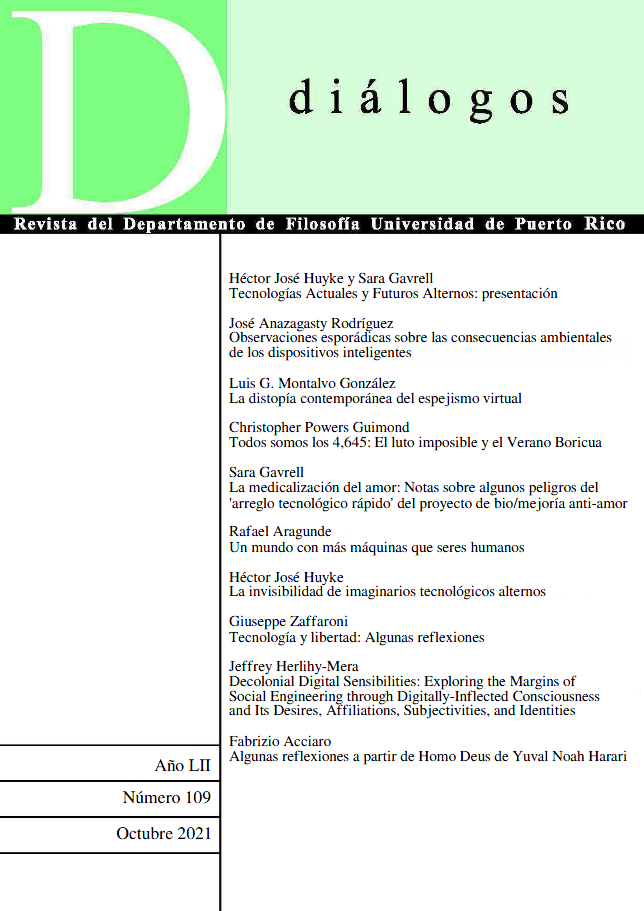Abstract
Technological changes are engendering a new "politics of memory" that instrumentalizes both private and social mourning. As mourning becomes virtualized, it becomes de-ritualized, converted into an isolated and alienated interaction. Derrida‘s philosophy of mourning critiques Heidegger‘s existential analysis and the concept of being-toward-death as well as psychoanalysis‘ account of mourning. It rejects the sublimation of loss and affirms fidelity to the introjected lost other. "Impossible mourning" is a form of positive haunting that resists the reductionism of mourning to ipseity in existentialism and psychoanalysis. While technology such as social media are potentiating both "asymbolic death" as well as manipulation of the politics of memory in the service of power and hierarchy, Derrida‘s ethics, on the one hand, and social movements like the Verano Boricua, on the other, resist the instrumentalization of mourning.

This work is licensed under a Creative Commons Attribution-NonCommercial 4.0 International License.

